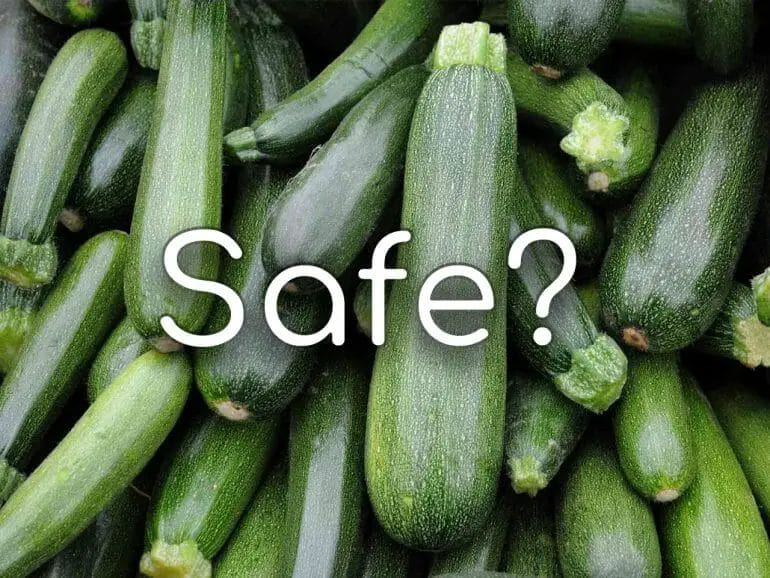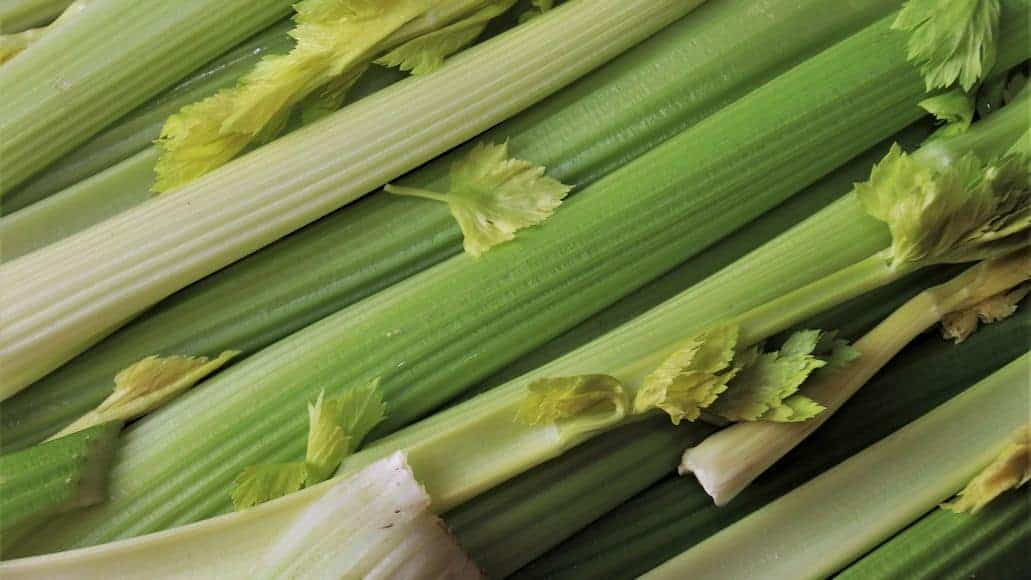Wondering if chinchillas can enjoy zucchini as part of their diet? Well, you’re in luck! Chinchillas can indeed eat zucchini and benefit from its nutritional value. Zucchini is a great source of vitamins and minerals, such as vitamin C and potassium, which are important for your chinchilla’s overall health. However, it’s essential to feed zucchini in moderation to ensure a balanced diet, as excessive amounts can lead to digestive issues. So, feel free to offer your furry friend some zucchini as an occasional treat!

How to Safely Introduce Zucchini into a Chinchilla’s Diet
Chinchillas are adorable and energetic pets that require a specialized diet to maintain their health and well-being. While their primary diet consists of hay, pellets, and limited fresh fruits and vegetables, it is essential to introduce new foods gradually to prevent digestive issues. Zucchini is a safe and nutritious vegetable that can be added to a chinchilla’s diet when done correctly. In this section, we will guide you on how to safely introduce zucchini to your chinchilla’s diet.
1. Choose Fresh and Organic Zucchini
When selecting zucchini for your chinchilla, opt for fresh and organic ones. Ensure that the zucchini is free from any pesticides or chemicals that could harm your pet. This precaution will help prevent any potential health issues and provide your chinchilla with the best quality food.
2. Wash and Prepare the Zucchini
Before offering zucchini to your chinchilla, wash it thoroughly under running water to remove any dirt or bacteria. Cut the zucchini into small, bite-sized pieces that are easy for your chinchilla to consume. Remember to remove any seeds or tough skin as these could pose a choking hazard or cause digestive problems.
3. Introduce Zucchini in Small Quantities
When introducing zucchini to your chinchilla’s diet, start with small quantities. Give your chinchilla a small piece, about the size of their paw, to gauge their reaction and tolerance to the new food. Observe their eating habits and behavior for any signs of adverse reactions such as diarrhea or bloating.
4. Monitor Your Chinchilla’s Response
After offering zucchini to your chinchilla, closely monitor their response for the next 24 to 48 hours. If your chinchilla shows signs of digestive upset or discomfort, such as diarrhea or a lack of appetite, remove the zucchini from their diet immediately. It is crucial to prioritize your chinchilla’s well-being and adjust their diet accordingly.
5. Gradually Increase the Amount
If your chinchilla tolerates the initial introduction of zucchini well, gradually increase the amount over time. Monitor their digestion and overall health closely during this process. Remember that moderation is key – zucchini should only be given as a small part of their overall diet and not as a primary food source.
6. Rotate with Other Safe Vegetables
Chinchillas thrive on a varied diet, so it is essential to rotate zucchini with other safe vegetables. This variety ensures they receive a balanced intake of nutrients. Some other vegetables that are safe for chinchillas include carrots, kale, and bell peppers. Introduce each new vegetable following the same gradual process as with zucchini.
7. Avoid Seasonings or Cooking
When offering zucchini to your chinchilla, avoid adding any seasonings, oils, or cooking the vegetable. Chinchillas should only consume raw, unseasoned vegetables to maintain their digestive health. Cooking or seasoning the zucchini may introduce harmful ingredients or alter its nutritional composition, which can be detrimental to your chinchilla’s well-being.
8. Consult with a Veterinarian
If you have any concerns or questions regarding your chinchilla’s diet, it is always best to consult with a veterinarian who specializes in exotic pets. They can provide personalized advice based on your chinchilla’s specific needs and help ensure their diet is balanced and suitable for their overall health.
In summary, introducing zucchini into a chinchilla’s diet can be done safely and provides additional nutrition. Remember to choose fresh and organic zucchini, wash and prepare it properly, start with small quantities, monitor your chinchilla’s response, gradually increase the amount, rotate with other safe vegetables, avoid seasonings or cooking, and consult with a veterinarian if needed. By following these steps, you can safely introduce zucchini as a healthy treat for your beloved chinchilla.

Nutritional Value of Zucchini for Chinchillas
Zucchini, also known as courgette, is a popular summer squash that belongs to the Cucurbitaceae family. It is a versatile vegetable that can be used in a variety of dishes. But have you ever wondered if chinchillas can eat zucchini? Let’s explore the nutritional value of zucchini for chinchillas and find out if it is a suitable food for them.
1. Vitamins and Minerals
Zucchini is a nutrient-dense vegetable that contains a range of vitamins and minerals essential for chinchillas’ well-being. It is particularly rich in vitamin C, which is important for the immune system and overall health. Additionally, zucchini contains vitamin A, vitamin K, and various B vitamins, which support proper growth and metabolism in chinchillas.
In terms of minerals, zucchini contains potassium, magnesium, and manganese, which contribute to healthy bone development and proper functioning of the nervous system. These minerals are important for chinchillas’ overall health and vitality.
2. Fiber Content
Zucchini is a good source of dietary fiber, which is crucial for chinchillas’ digestive health. The high fiber content in zucchini can help regulate the digestive system and prevent issues like constipation. Fiber also aids in the absorption of nutrients and promotes a healthy weight in chinchillas.
3. Water Content
Zucchini has a high water content, which is beneficial for chinchillas as it helps keep them hydrated. Proper hydration is essential for chinchillas’ overall health and can prevent issues like urinary tract infections and dehydration.
4. Low in Calories
Zucchini is a low-calorie vegetable, making it a suitable addition to a chinchilla’s diet. Chinchillas require a balanced diet that is not too high in calories to prevent obesity and related health problems. Zucchini can be a healthy and low-calorie treat for chinchillas when offered in moderation.
5. Feeding Zucchini to Chinchillas
When feeding zucchini to chinchillas, it is important to introduce it gradually and in small amounts. Start by offering a small piece and monitor your chinchilla’s reaction. If there are no digestive issues or allergic reactions, you can continue to include zucchini as part of their diet.
Remember to wash the zucchini thoroughly to remove any pesticides or dirt before serving it to your chinchilla. It is best to offer fresh zucchini rather than cooked or canned versions, as processed foods may contain additives that can be harmful to chinchillas.
Summary
In summary, zucchini can be a nutritious addition to a chinchilla’s diet. Its high vitamin and mineral content, along with its fiber and water content, make it a beneficial vegetable for chinchillas. However, always introduce new foods slowly and in moderation to ensure your chinchilla’s digestive system can tolerate it. Consult with a veterinarian if you have any concerns about introducing zucchini or any other foods to your chinchilla’s diet.

Potential Risks and Precautions of Feeding Zucchini to Chinchillas
Chinchillas are herbivorous animals and their primary diet consists of hay, pellets, and a variety of fresh vegetables. While feeding them a balanced diet is essential for their overall health, it is important to be aware of potential risks and precautions when introducing new foods like zucchini.
Potential Risks:
1. Digestive Issues: Chinchillas have a sensitive digestive system, and sudden changes in their diet can lead to digestive problems such as diarrhea, bloating, or gastrointestinal stasis. Zucchini is a watery vegetable and excessive consumption may cause loose stools or upset stomachs.
2. High Water Content: Zucchini has a high water content, which can disrupt the delicate balance of a chinchilla’s digestive system. Excessive consumption of zucchini can lead to hydration issues and may dilute essential nutrients in the chinchilla’s body.
3. Oxalic Acid: Zucchini contains oxalic acid, which can interfere with calcium absorption in the body. Chinchillas require adequate calcium for healthy teeth and bones. Feeding a diet high in oxalic acid can lead to calcium deficiency, resulting in dental and bone problems.
Precautions:
1. Moderation is Key: When introducing zucchini to your chinchilla’s diet, it is important to start with small amounts and gradually increase over time. This allows their digestive system to adjust and reduces the risk of digestive issues.
2. Balanced Diet: Zucchini should only be considered as a treat or occasional addition to your chinchilla’s regular diet. It should not replace the primary sources of nutrition such as hay and pellets. Ensure that the majority of their diet consists of high-quality hay and chinchilla pellets to meet their nutritional needs.
3. Fresh and Organic: When offering zucchini to your chinchilla, choose fresh, organic zucchinis to minimize the risk of pesticide exposure. Wash the zucchini thoroughly before serving and remove any seeds or tough parts.
4. Variety is Essential: Chinchillas require a diverse range of vegetables to obtain the necessary vitamins and minerals. Rotate the vegetables you offer to ensure a balanced diet and prevent dependency on a single food item.
Summary:
While zucchini can be a healthy addition to a chinchilla’s diet when given in moderation, it is important to be cautious of potential risks. Digestive issues, high water content, and oxalic acid are the main concerns associated with feeding zucchini to chinchillas. By taking necessary precautions, maintaining a balanced diet, and introducing new foods gradually, you can ensure the well-being of your chinchilla and minimize any potential health risks.
Creative ways to incorporate zucchini into a chinchilla’s diet
Chinchillas are herbivores and their diet primarily consists of hay, pellets, and occasional treats. While it might seem unusual, incorporating vegetables like zucchini into their diet can be a healthy and enjoyable addition for your pet. Zucchini is low in calories and high in nutrients, making it a great choice for your chinchilla’s diet. Here are some creative ways to incorporate zucchini into your chinchilla’s meals:
1. Zucchini Treats
You can create delicious and nutritious zucchini treats for your chinchilla. Start by washing and cutting a small piece of zucchini into bite-sized chunks. Place the chunks in a dehydrator or oven set to a low temperature to remove moisture and create a crunchy texture. Once the zucchini is dry and crisp, offer it to your chinchilla as a special treat. Remember to offer treats in moderation to maintain a balanced diet.
2. Zucchini Puree
Zucchini puree can be a great way to introduce this vegetable to your chinchilla’s diet. Steam or boil a small piece of zucchini until it becomes soft and easily mashable. Let it cool down and then mash it into a smooth puree using a blender or food processor. Serve a small amount of the puree as a topping for your chinchilla’s hay or pellets. This method allows your chinchilla to enjoy the taste and benefits of zucchini while also ensuring they consume their essential diet.
3. Zucchini Stuffed Hay Cubes
Another fun way to incorporate zucchini into your chinchilla’s diet is by stuffing it into hay cubes. Start by cutting a small piece of zucchini into tiny cubes. Take a hay cube and carefully make a small hole in the center using your finger or a knife. Fill the hole with the zucchini cubes and offer it to your chinchilla. This not only adds variety to their diet but also encourages foraging behavior and mental stimulation.
4. Zucchini Skewers
Create zucchini skewers to make mealtimes more interesting for your chinchilla. Cut thin slices of zucchini and thread them onto a wooden skewer. Place the skewer in your chinchilla’s habitat, allowing them to chew on the zucchini slices at their own pace. This interactive feeding method provides both physical and mental stimulation for your pet.
5. Zucchini and Pellet Mix
If your chinchilla is hesitant to try zucchini on its own, you can mix it with their regular pellets. Finely chop a small piece of zucchini and mix it with the pellets. Ensure that the zucchini is evenly distributed throughout the mixture. This way, your chinchilla will gradually get used to the taste and texture of zucchini while still receiving their essential nutrients from the pellets.
In summary, incorporating zucchini into your chinchilla’s diet can be a healthy and enjoyable addition. However, it’s essential to introduce new foods gradually and in moderation. Always consult with a veterinarian before making any significant changes to your pet’s diet to ensure their health and well-being. With these creative ideas, you can provide your chinchilla with a diverse and nutritious diet.
FAQs
Can chinchillas eat zucchini?
Yes, chinchillas can eat zucchini in small amounts. It should be given as an occasional treat and not as a regular part of their diet. Remove any seeds or skin before offering it to your chinchilla, and monitor their reaction to ensure they tolerate it well.
What should I feed my chinchilla?
A chinchilla’s diet should primarily consist of hay, specifically Timothy hay, as well as high-quality chinchilla pellets. Fresh water should be available at all times. Occasional treats like small portions of fruits and vegetables can also be given, but they should not make up more than 10% of their diet.
Can chinchillas eat chocolate?
No, chinchillas should never be given chocolate. Chocolate is toxic to chinchillas and can cause severe health issues. It’s important to keep all chocolate products, including cocoa powder and chocolate-covered treats, away from chinchillas to ensure their well-being.
Conclusion:
In conclusion, chinchillas can indeed eat zucchini as part of their diet. Zucchini is a safe and healthy food option for these small mammals, providing essential nutrients and hydration. However, it is crucial to feed them in moderation to prevent digestive issues. Remember to introduce new foods gradually and monitor your chinchilla’s reaction. Offering a balanced diet with a variety of fruits, vegetables, hay, and pellets is vital for their overall well-being. As always, consult with a veterinarian or an exotic pet specialist for personalized dietary recommendations for your chinchilla’s specific needs.

